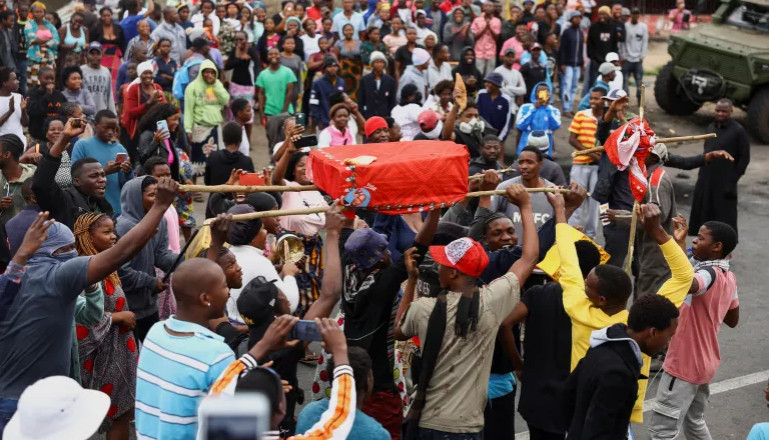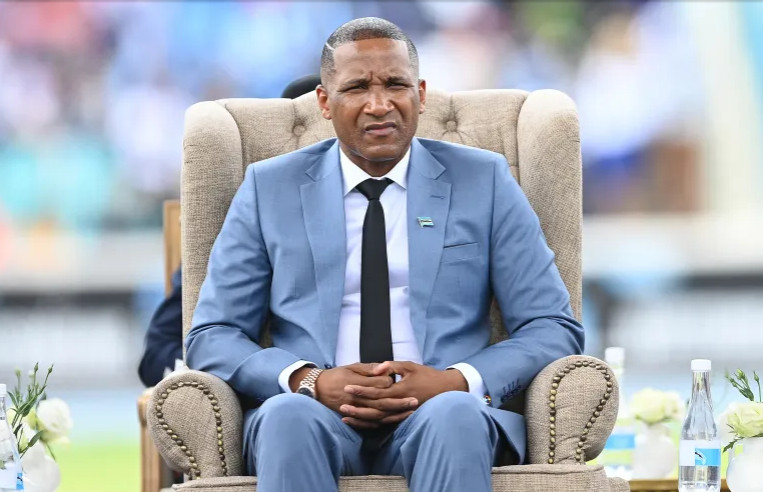Africa’s quest for democratic governance has been a journey filled with resilience, contention, and transformation. Recent events in Botswana and Mozambique highlight the divergent realities of democracy across the continent. While Botswana’s smooth political transition signifies a stable democratic process, Mozambique’s post-election violence underlines ongoing challenges. This contrast prompts reflection on whether the democratic governance model, as implemented across Africa, suits the continent’s unique social, political, and economic landscapes, and what alternative governance structures might better serve its people.
The Promise of African Democracy
Democracy is built on principles of equality, individual freedoms, and transparent governance. After gaining independence from colonial powers, many African nations embraced democracy as a beacon of hope. They believed it would replace the divisive colonial governance systems, empowering citizens to participate in leadership selection and decision-making. In countries like Ghana, Senegal, Namibia, and Botswana, democracy has proven its potential as a foundation for stability, transparency, and development.
Botswana, for example, has a longstanding tradition of peaceful democratic transitions. The recent swearing-in of Duma Boko as president, free from protests and violence, demonstrates the citizens’ acceptance of electoral outcomes and underscores Botswana’s commitment to democratic ideals. In this case, the political stability witnessed in Botswana reflects an effective and mature democratic culture, rare but vital in the African context.
Senegal, often cited as an example of democratic stability, has consistently held credible elections and maintained an open political climate. Its commitment to democracy has fostered a conducive environment for economic growth and peaceful power transitions. Ghana, too, has emerged as a bastion of democracy in West Africa, managing frequent, relatively peaceful power transitions. These countries show that when democracy is properly implemented and respected, it can serve African societies effectively.
Challenges Facing African Democracy
However, the democratic journey is far from straightforward for most African nations. For every Botswana, there is a Mozambique, where democratic principles are challenged by violence, corruption, and socio-political struggles. Mozambique’s recent election violence is just one of many instances illustrating the complex landscape of African democracy. Reports of at least 30 deaths following disputed electoral outcomes underscore the difficulties facing many African democracies, where political power is often seen as a vehicle for personal or ethnic gain rather than national service.
1. Electoral Malpractices:
In many African countries, elections are marred by vote-rigging, voter intimidation, and electoral fraud. Leaders manipulate processes to remain in power, often suppressing opposition voices. Countries like Zimbabwe, Uganda, and Cameroon have witnessed electoral irregularities that cast doubt on the legitimacy of their governments. In these nations, democracy becomes more of a formality than a genuine system of governance reflecting the people’s will.
2. Ethnic and Tribal Politics:
Africa’s ethnic diversity, though a strength, can also be a barrier to democracy. Tribal loyalties often influence political allegiances, sometimes overriding national interests. Politicians exploit ethnic divisions to secure support, leading to tensions that undermine democratic processes. Kenya’s electoral history is marked by ethnic-driven electoral violence, and countries like Nigeria have also grappled with tribal loyalties influencing political decisions.
Weak Institutional structures | Economic Instability | External Influence
3. Weak Institutional Structures:
Democracy relies on strong, independent institutions that uphold the rule of law and ensure transparency. Unfortunately, many African nations lack robust institutions capable of checking executive power, safeguarding electoral integrity, and protecting citizens’ rights. When institutions are compromised, leaders can manipulate the system to retain control, as seen in the Democratic Republic of Congo (DRC), where democratic institutions remain fragile and prone to political interference.
4. Economic Instability:
Widespread poverty and economic instability create environments where citizens may be more susceptible to vote-buying and political manipulation. In countries where basic needs are unmet, the appeal of democracy can wane as people prioritize survival over political ideals. For instance, in Sudan, decades of economic instability have contributed to recurring political upheavals, making it difficult for democratic governance to take root effectively.
5. External Influences and Neo-Colonialism:
Foreign intervention in African politics has also undermined democracy. Western nations and corporations often prioritize strategic or economic interests over democratic integrity, providing support to authoritarian leaders or backing military interventions. In Libya, for example, the 2011 NATO-backed intervention led to the ousting of Muammar Gaddafi, creating a power vacuum and political instability that persists today. Such interventions raise questions about the genuineness of external support for African democracy.
Is Democracy a Good Fit for African Societies?
The challenges facing democracy in Africa have sparked debates over whether the model is inherently suitable for African societies. Critics argue that Western-style democracy, with its focus on individualism and competition, may not align with Africa’s communal cultures and historical governance systems. African societies traditionally valued consensus-based decision-making, where leaders emerged through communal agreement rather than divisive elections. Some advocate for hybrid systems that combine democratic principles with local traditions, fostering both representation and stability.
For instance, Rwanda’s political model under President Paul Kagame combines elements of democracy with a unique governance structure that reflects Rwandan values and priorities. Despite criticisms of authoritarianism, Rwanda has achieved remarkable development and stability, showing that tailored governance systems may sometimes be more effective than rigid democratic models.
Pathways to Strengthening Democracy in Africa
While democracy faces challenges in Africa, abandoning it altogether would risk undoing decades of progress in political freedom and human rights. Rather than rejecting democracy, African nations could explore ways to adapt it to local contexts, strengthening the model to address the continent’s unique challenges.
1. Strengthening Institutions:
Building independent, resilient institutions is essential to upholding democracy. By empowering judicial bodies, election commissions, and anti-corruption agencies, African nations can create systems of accountability that reduce abuses of power.
2. Promoting Civic Education:
Educating citizens about their rights and responsibilities in a democratic society can foster a culture of active participation and accountability. Civic education should emphasize the importance of voting, encourage community engagement, and promote understanding of democratic processes, helping citizens resist political manipulation.
3. Addressing Economic Inequalities:
Reducing poverty and economic inequality is vital to strengthening democracy. African governments should prioritize policies that create jobs, ensure equitable resource distribution, and support social welfare programs. When citizens are economically empowered, they are less vulnerable to manipulation and can participate more meaningfully in democratic processes.
4. Embracing Local Governance Models:
Countries should explore governance models that incorporate African traditions of consensus-building and community leadership. Hybrid systems that blend democracy with traditional governance structures could offer stability while respecting African values, helping to bridge the gap between modern democracy and local cultures.
5. Regional and International Support:
African Union (AU) and regional bodies like ECOWAS can play significant roles in supporting democratic practices, mediating electoral disputes, and intervening when democracy is threatened. International partners should also reconsider their engagement strategies, supporting African-led solutions rather than imposing external agendas.
Conclusion
The journey toward democracy in Africa is complex and fraught with challenges. While countries like Botswana and Ghana demonstrate democracy’s potential, others like Mozambique reveal its limitations when misaligned with local realities. African democracy requires adaptation, resilience, and an unwavering commitment to both the continent’s unique identity and the universal principles of governance that empower citizens. Embracing flexible democratic models and strengthening institutional frameworks may hold the key to realizing Africa’s democratic aspirations, ensuring that democracy serves as a path to unity, stability, and prosperity for all African societies.
Related Articles: Post-Election Violence in Mozambique
More Articles: Media Wall

